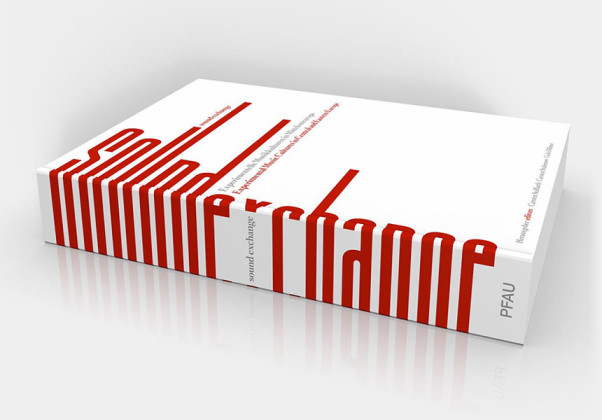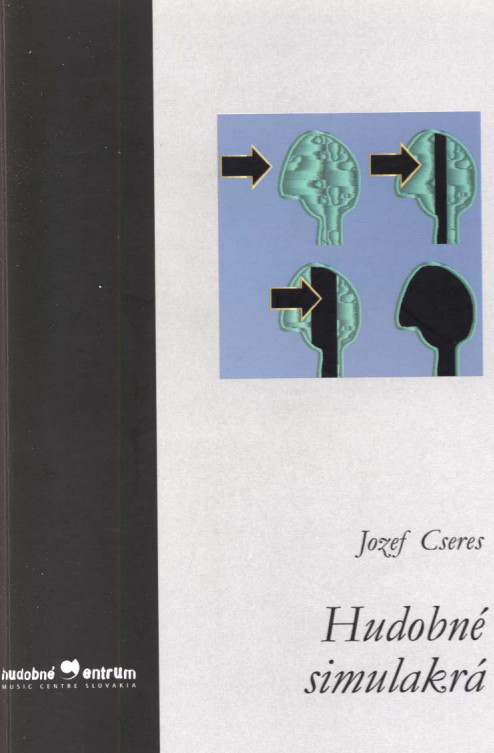Sound Exchange: Anthology of Experimental Music Cultures in Central and Eastern Europe 1950-2010 (2012) [English/German]
Filed under book | Tags: · central europe, czech republic, east-central europe, eastern europe, electroacoustic music, electronic music, estonia, experimental music, germany, hungary, latvia, lithuania, music, music history, poland, radio art, slovakia, sound art, sound recording

“The long traditions of experimental music cultures in Central and Eastern Europe are diverse and multifaceted, but have been difficult to access until now. With contributions from selected music, media and cultural studies specialists from eight countries, this anthology bundles together elements of unearthing material locally and documents current positions and historical finds by protagonists, as well as musical aesthetic qualities in the history of musical experiments in Central and Eastern Europe. The anthology pursues commonalities and singularities and discusses their relationship with the international history of experimental music.
The often barely known musical and artistic positions portrayed here show a wide stylistic and aesthetic spectrum of electro-acoustic music, composed and improvised music, musical media art and audio art from 60 years of experimental musical culture in the context of decades-long political repression and an atmosphere of increasing openness and international networking following 1989.”
With contributions by Antoni Beksiak, Balázs Kovács, Daiga Mazvērsīte, Gerhard Lock, Hans-Gunter Lock, Māra Traumane, Martin Flašar, Michal Rataj, Miloš Vojtěchovský, Monika Pasiecznik, Pavel Klusák, Slávo Krekovič, Tautvydas Bajarkevicius, Viestarts Gailītis.
Edited by Carsten Seiffarth, Carsten Stabenow, and Golo Föllmer
Publisher PFAU, Saarbrücken, 2012
ISBN 9783897274877, 3897274876
400 pages
PDF (20 MB, added on 2019-1-25, via book website)
HTML (updated on 2019-1-31)
David Byrne: How Music Works (2012)
Filed under book | Tags: · music, popular music, sound recording

“How Music Works is David Byrne’s buoyant celebration of a subject he has spent a lifetime thinking about.
Equal parts historian and anthropologist, raconteur and social scientist, Byrne draws on his own work over the years with Talking Heads, Brian Eno, and his myriad collaborators – along with journeys to Wagnerian opera houses, African villages, and anywhere music exists – to show that music-making is not just the act of a solitary composer in a studio, but rather a logical, populist, and beautiful result of cultural circumstance.
A brainy, irresistible adventure, How Music Works is an impassioned argument about music’s liberating, life-affirming power.”
Publisher Canongate Books, 2012
ISBN 0857862510, 9780857862518
348 pages
review (Mark Ellen, The Guardian)
review (Cory Doctorow, BoingBoing)
review (Geeta Dayal, Wired)
review (John Rockwell, The New York Times)
interview with the author (Vice)
Jozef Cseres: Hudobné simulakrá (2001) [Slovak]
Filed under book | Tags: · electronic music, music, music history, music theory, opera, sound art, sound recording

“Známy estetik sa vo svojej knihe zaoberá vplyvnými svetovými umelcami, pre ktorých technológie nie sú nástrojom, zjednodušujúcim prácu, ale predovšetkým tvorivou výzvou.”
“We may not be aware of the fact that much of today’s music is created with the help of electronics. In his book, Cseres focuses on influential artists who do not use technology to facilitate their task, they rather consider it a creative challenge. With philosophical insight he pinpoints the relation between today’s music and intermedia and science, between the possibilities and constraints of technology, and most of all between human imagination and creativity in the post-modern era.”
Publisher Hudobné centrum, Bratislava, 2001
ISBN 8088884306, 9788088884309
192 pages
Reviews: Július Fujak (aluze.cz, 2002), Michal Rataj (Hudební věda, 2005).
PDF (no OCR)
Comment (0)
